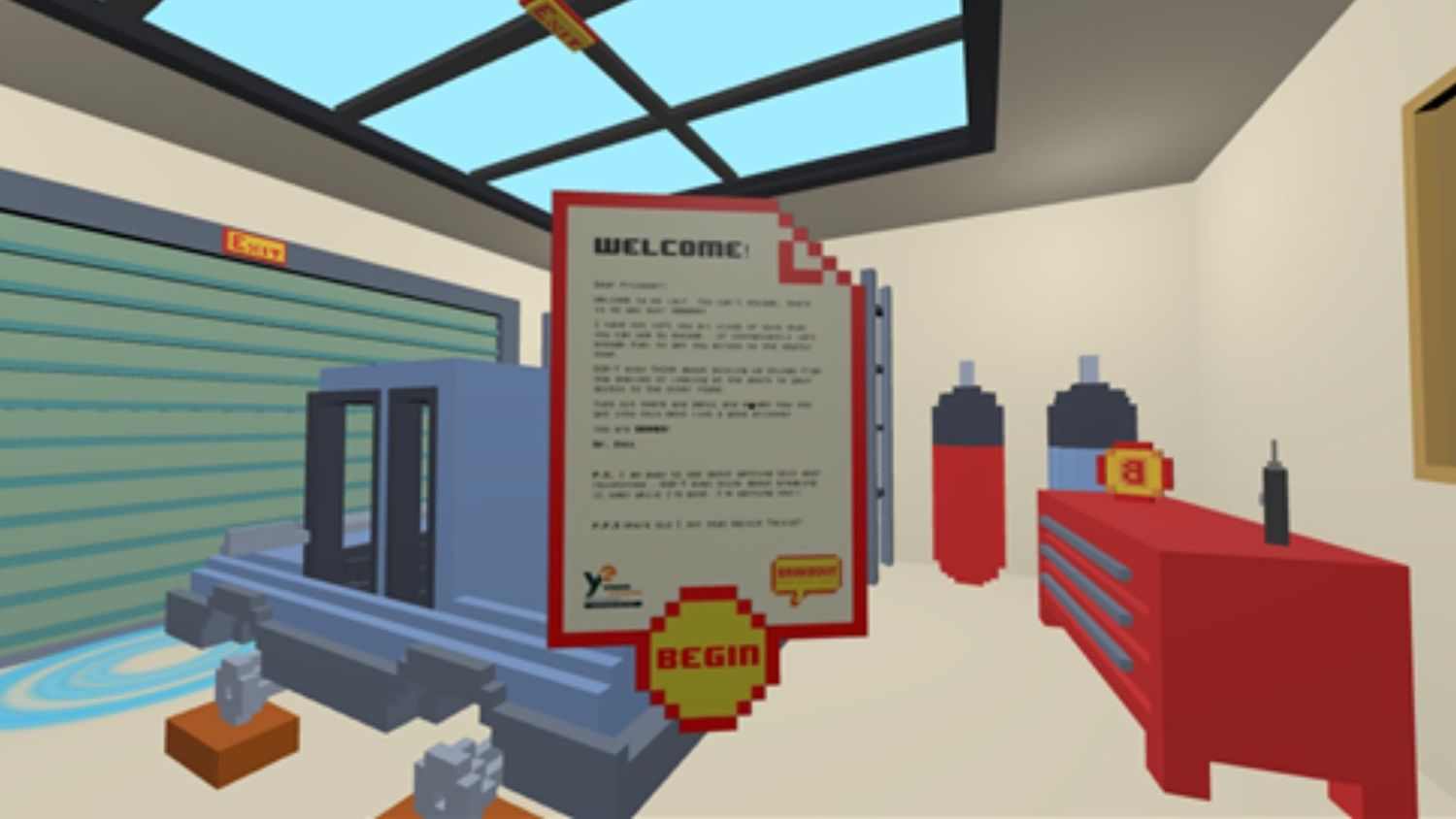
Foundation News
Young Enterprise NI inspire students into STEM careers
10 Mar 2021
Techies in Residence (TiR) has supported over 25 groups since its inception and is focused on creating powerful change within communities through digital technology. We believe that digital technology holds huge potential to help the VCSE sector develop new innovative solutions to address community challenges and issues. This has become even more evident in light of the outbreak of COVID 19 with many organisations grappling with the shift to digital working – and how best to respond to it.
Young Enterprise NI and Zoo Creative are just one of six groups taking part in this years TiR programme, together they are combining VR and the A Team to inspire students into STEM careers.
With a target of 30,000 primary and post primary students to engage with this year, even during the pandemic, the education and employability team at Young Enterprise Northern Ireland spotted an opportunity in the mass movement online for many aspects of daily life to develop a new way to introduce young people to potential careers in STEM.
Signing up for the 2020-21 Techies in Residence programme, the team outlined their ideas and were matched with programme veteran, Richard Walsh from Zoo Creative with whom they have worked closely since last December. This is the fifth iteration of the Techies in Residence programme and is being delivered entirely online.
Barbara Edgar, Development Manager at YENI explained the rationale behind their Techies in Residence project.
“We’ve just reached the halfway point in the project and we’re delighted with its progress. The team has gelled really well and when we’re finished, we’ll have a really useful tool to engage with students in a practical way.
“Our challenge lay in the fact that exposure to potential STEM careers is the remit of a school’s careers team. If the team is strong and sufficiently resourced that works really well. Where they’re not, it means the young people have no reference point and don’t think STEM subjects are relevant to them. It can be a real challenge in some schools, especially all-girls schools, so our aim is to help them consider science as an option.
“We wanted to create a real-world experience, so students could see how STEM subjects can be used in many aspects of everyday life. The digital masterclass we’re creating includes a talk and practical activity.”
The YENI and techies team is developing a Virtual Reality experience, entitled “Brakeout” that will challenge groups to solve a challenge by working in a team. One team member will wear a VR headset while the others will use the information provided to guide the headset wearer to escape the locked facility they’re in and reach the final destination ahead of other groups.
Barbara continued:
“We wanted to make programmes interactive. The focus is on problem solving with a competitive element and teams will need to communicate, construct and complete the task. The entire module takes 30 minutes with the actual group activity taking 15 minutes.”
Richard Walsh from Zoo Creative is a big fan of both the Techies in Residence programme and Virtual Reality.
“We’re delighted with what’s been created so far and there’s lots of flexibility and potential to create different learning scenarios in the future. The skill sets demanded to cover off things we would be looking for in a future employee.
“I’m a personal advocate of VR and I think it is underutilised to solve real world problems. That’s the thing I like about the Techies in Residence programme; very few people would look at VR as a commercial opportunity outside the world of gaming and here we are using it to get young people excited about STEM as a possible career path. Brakeout reminds me of the challenges faced by the A -Team back in my youth, which I love. Even better at the end of the programme we’ll have a VR showcase to share with potential clients looking to solve a business problem.”
The pandemic has created opportunities for the Young Enterprise team to reach new schools, with many being funded through their council to take part in a digital youth programme. Confident that the product can be brought to schools at the end of the Techies in Residence programme, the education and engagement team has worked hard to develop their skills so regardless of whether they receive additional funding, they will be able to maintain and build on the assets they now have.
Barbara concluded:
“We’re futureproofing our work as far as possible. Brakeout was built using the tool MagicVoxel, and has a similar look and feel to Minecraft and Roblox. We’re learning how to use free software to add new features.
“This process is incredibly enjoyable, we’re learning so much as we go and we’re so appreciative to the Community Foundation for the experience we’re gaining through Techies in Residence.”
The Foundation would like to thank Comic Relief for funding this year’s Techies in Residence programme and their invaluable support.
You can find out more about the Techies in Residence programme here.

